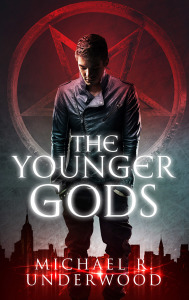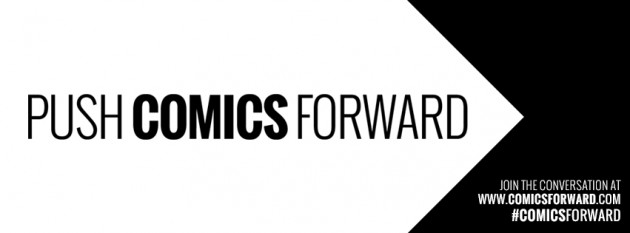The Younger Gods is my fourth published novel, but my first with a white male protagonist. This is not a co-incidence – it was a very deliberate choice.
Stories make our world. As a writer, I help tell the stories that people internalize to set their expectations of what the world is, and who is welcome and valid in it. For me, being a writer means including people from diverse backgrounds and lived experiences. To do any less is to erase them from history and deny their existence.
Instead, I aggressively seek out ways to write characters from diverse backgrounds and lived experiences, both to show the breadth of viable lives and perspectives that humanity holds, and to use my disproportionately-favored voice as one with privilege Yatzee (male, straight, white, cisgender, middle class, neurotypical, able, etc.) to bring greater attention to and respect for the diversity of lived experiences in the world.
Writing diversely has been a mission that I embrace whole-heatedly, challenging myself to learn more about the world and about the people in it. I feel that writing diversely greatly enriches my work, helps me avoid cliche and lazy storytelling. In writing diversely, I seek to create stories that people from many different lived experiences can see themselves in, stories that say, “We can all be heroes.”
So, that’s all great in theory, Mike. But do you walk the walk?
In addition to actively casting The Younger Gods in a manner that fits the city’s demographics (numerous African-american characters, Filipino characters, Hispanic characters, South Asian Characters, etc.), I made several conscious casting changes in The Younger Gods – one in the middle of the rough draft, and another change very close to publication. the first change is that the character of Dorothea was originally a man. I wanted my cast to have a better gender balance, and found that writing the Broadway Knight character as a woman was even more interesting for me.
The other changes were the opposite direction, changing a female character to male. In an earlier draft, Jacob’s friend Thomas was his girlfriend, Jennifer – things still went sour after prom, but it was a loss of a romantic partner instead of a platonic friend. The death of Jessica had been part of the character’s story pretty much since the beginning, from when I first had the idea over ten years ago.
But in the process of revisions, I realized that there was no way to keep Jessica in the role without her being an example of Women in Refrigerators (trigger warning: sexualized violence against women). I’d internalized that narrative trend thanks to decades of reading comics and playing video games, etc., and only when I was nose-deep in revisions did I realize that I was replicating it without useful critique or subversion. No matter how I framed the death or demonized it, it was still another Fridging. And I wouldn’t have been proud of the work if I hadn’t made that change. In the conversation I had with my fiance, I had to actively push back the panic and shame I was experiencing about putting a book out with a major fail like that. But thankfully, I was able to make the change, with the support of my editor, Adam Wilson.
The Takeaway
Making that change not only meant that I didn’t have a fridged girlfriend as a motivating factor for my leading character, but what I ended up with was a stronger story overall. Having Thomas in that role – as Jake’s one friend betrayed by his family, sending our hero away from the family – meant that all of the other themes of friendship and alienation throughout the book were enriched by that loss and guilt about Thomas that Jacob felt.
In my experience as a consumer and student of stories, the loss male best friend is a far less common motivating factor for a male character than the loss of a romantic partner. Male friendships are downplayed, contextualized as being ‘bromances,’ often to avoid homosocial/homosexual connotations (because the patriarchy says that gay = effeminate, and since feminine = bad, gay = bad! Thanks, patriarchy! Your logic is as straightforward as it is spurious and toxic). So having Thomas be a major motivator for Jake gave me a new perspective on the story. And I think the novel is stronger for it, since so much of the rest of the novel is about Jacob learning about how to reach out to other people, to build friendships and rely on those friends and allies.
It is not sufficient for me to write only people who look like me, who come from my exact background. Writing diversely gives me challenges, forces me to stretch my writing skills, and creates the opportunity for me to explore the world through the perspective of people who come from and have lived very different lives than I have. I can’t tell other writers that they *have* to write diversely. Even if I did, it’s better for writers to come to that decision for themselves. I think it’s far better to write diversely and to mess up than to be afraid and let that fear of rebuke control you, so that you settle for the easy writing choices and produce another white-washed, overwhelmingly male, white, cisgenger, straight world that Hollywood so often shows us as their ‘default).
Writing Diversity While Playing in Life’s Easy Mode
The weird thing is that my Privilege Yahtzee actually puts me at an advantage even when intentionally writing diversely. I’m more likely to be able to sell a work that has a lot of diversity, than a woman or a person of color is. And once sold, I’m more likely to be lauded for it, as a “brave” or “insightful” or something. All of this, just for meeting a minimum bar of decency that I set for myself. It’s a weird reality, but it seems to be the way of things. And if I can use my privilege to get more stories into the world that acknowledge and celebrate the lived experiences of people from diverse backgrounds, then I will totally do so. And along the way, I’ll also use my privilege to promote the voices and works of people from diverse backgrounds and lived experiences. I can do both, and both make the world better.
Writing diversely, and doing it well, is not easy. I will mess up. I have already messed up, and been called on it, and have taken those comments to heart. But I wouldn’t have learned those lessons, wouldn’t have become better-able to write diversely, if I hadn’t tried.
This is not about fishing for cookies, it is not about white/male/anything guilt.
Here’s what it is:
- A promise to myself that I won’t settle for my ingrained, lazy defaults as a person who grew up in a culture that’s patriarchal, kyriarchal, racist, and more.
- A realization that challenging my own assumptions will let me dig deeper and find fresh, more interesting ways of storytelling.
- A public pledge to tell stories about and for as much of the world as I can, to make sure that I do not erase and ignore people who have been marginalized, oppressed, and erased in/from narratives of all sorts (fictional, historical, etc.).
- An effort to show other writers who are intimidated by the idea or practice of writing diversely for fear of its difficulty or fear of getting it wrong.
To those writers, let me say this: it’s better, in my eyes, to be a screw-up with good intentions, working (imperfectly) on the side of social justice and inclusion than to take the easy route and let your work perpetuate the crappy, marginalizing and erasure-tastic status quo. Your mileage may vary, but this is where I stand.
When it comes to writing diversely, I am proud of The Younger Gods. I put a lot of time into making sure that it showed a more accurate cross-section of the people who live in actual New York even as I was moving apocalyptic sorcerers, Nephilim, and other super-humans around to chase each other and have fight scenes. I feel that it is a stronger book for being diverse, and I hope you will enjoy it.



